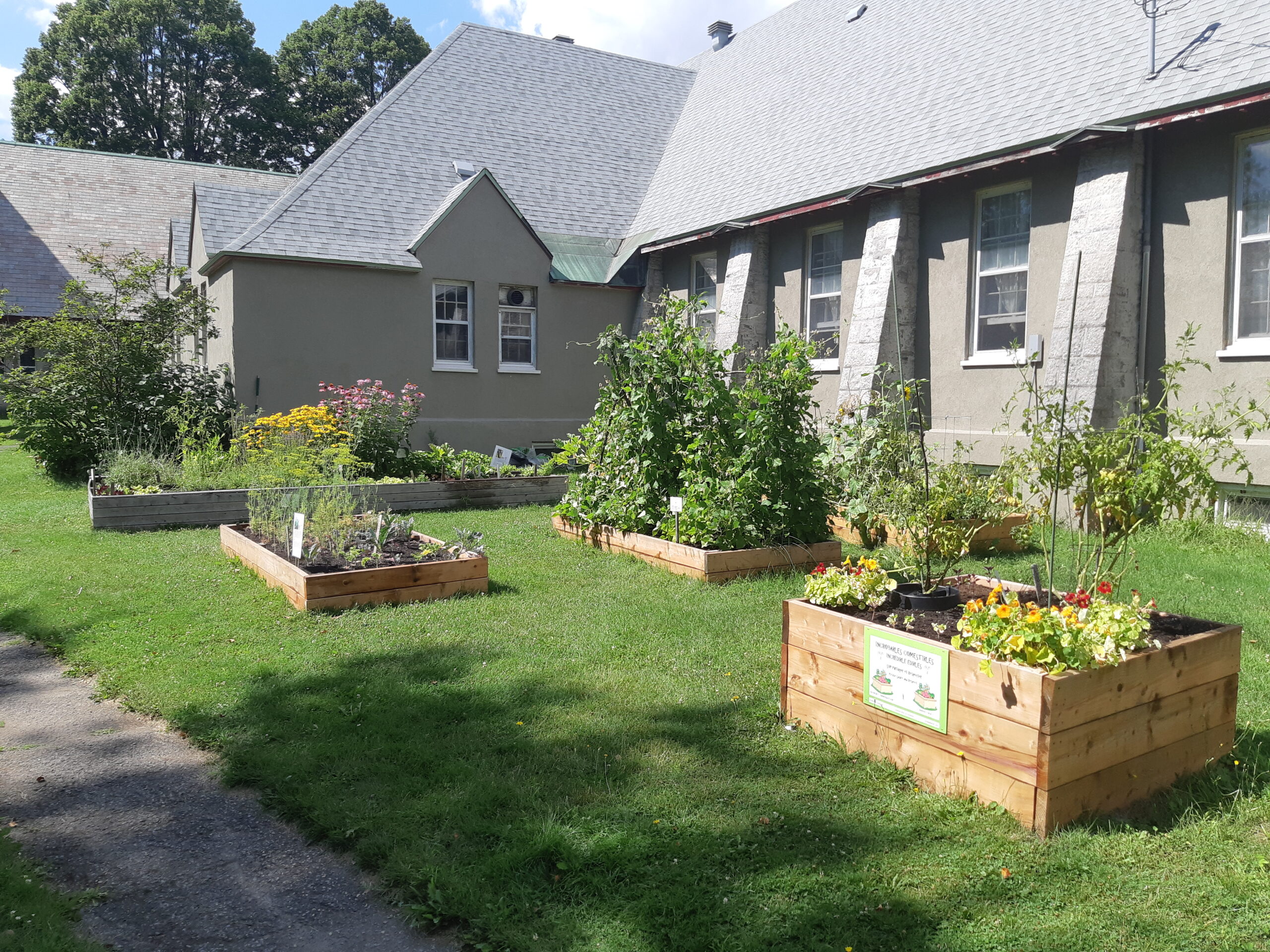In August 2019, St Philip’s Church – along with the NDG group Incredible Edibles and a group of students at Concordia – launched a community garden. In 2020, we broke ground on a project to transform the land into a permaculture food forest.
This year, expansion continues. In May, despite rising lumber prices, we constructed two more raised beds, bringing our total to six. Volunteers planted lettuce, kale, mustard greens, various herbs, tomatoes, cucumbers, pole beans, zucchini, and radishes. We continue to experiment with what grows best in which location. About a dozen volunteers, both parishioners and neighbours, tend the garden, water, weed, and plant; we also have a few volunteers who pick some of the produce and deliver it to seniors. As socializing is otherwise restricted, it has been an excellent opportunity for small groups to get together and have face-to-face contact while working. Likewise, when working in the garden, there is an opportunity to interact with the many people who come through in the course of a day, some just passing by, others very interested in what is growing. We encourage visitors to sample the strawberries, take some lettuce or beans, or whatever is ripe for harvesting, for their supper. We also educate them about the plants and about gardening in general.
In the spring, I was spreading mulch between the plants, and a neighbour passing through asked about what I was doing. I took a break to show him how dry the soil was, and to explain how the mulch will help trap moisture in the soil, so that we don’t have to water it as frequently, thereby conserving water. That led to a discussion of how the flowers there will help attract bees and beneficial insects, which will also pollinate the squash, cucumbers, beans, tomatoes, and fruit trees. From there, I could explain how the whole project is part of how we “strive to safeguard the integrity of God’s creation, and respect, sustain, and renew the life of the Earth”, as our Baptismal Covenant urges.
That care for creation includes our furry and feathered friends. Last summer, during a long dry spell, squirrels chewed off the tops of our plum and mulberry trees, in order to get moisture from the sap. This year, we have put out dishes of water around the garden, for them to drink. So far, they have left the trees alone. But they did feast on the sunflowers that we planted, before they even had a chance to bloom. We may need to allocate some plantings for the squirrels, just as we have for the birds: a mountain ash tree will in a few years’ time provide berries that last into winter, and (we hope) keep the birds away from the fruit trees.
For next year, expansion plans include an “herb spiral”, a mound with a spiral arrangement of rocks supporting a variety of perennial and annual herbs, and a few more fruit trees.


